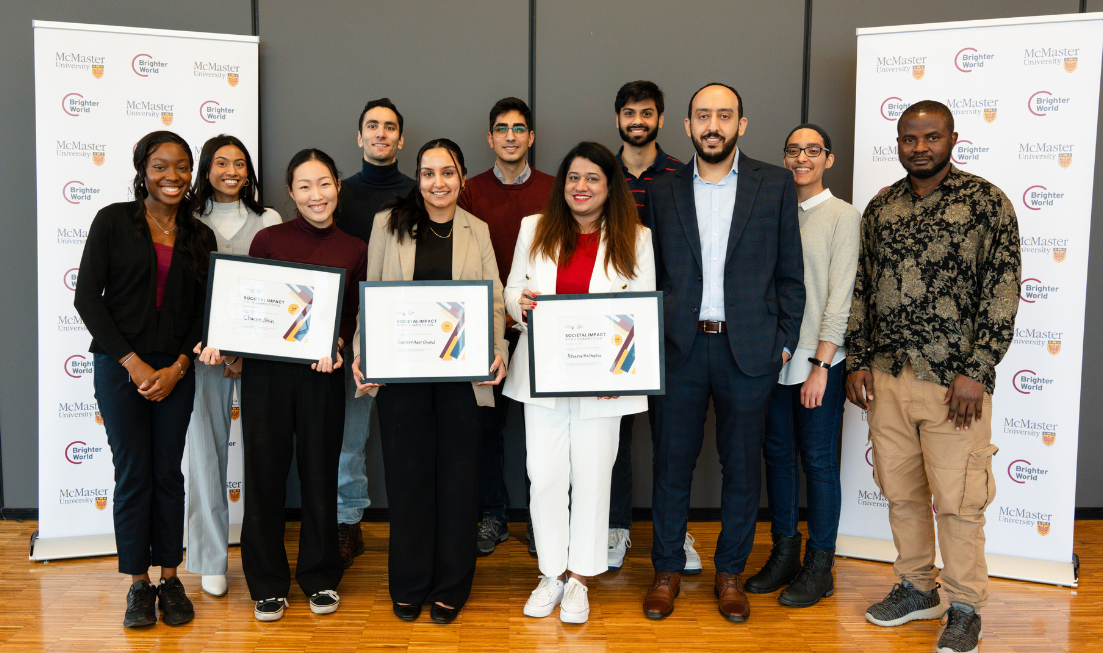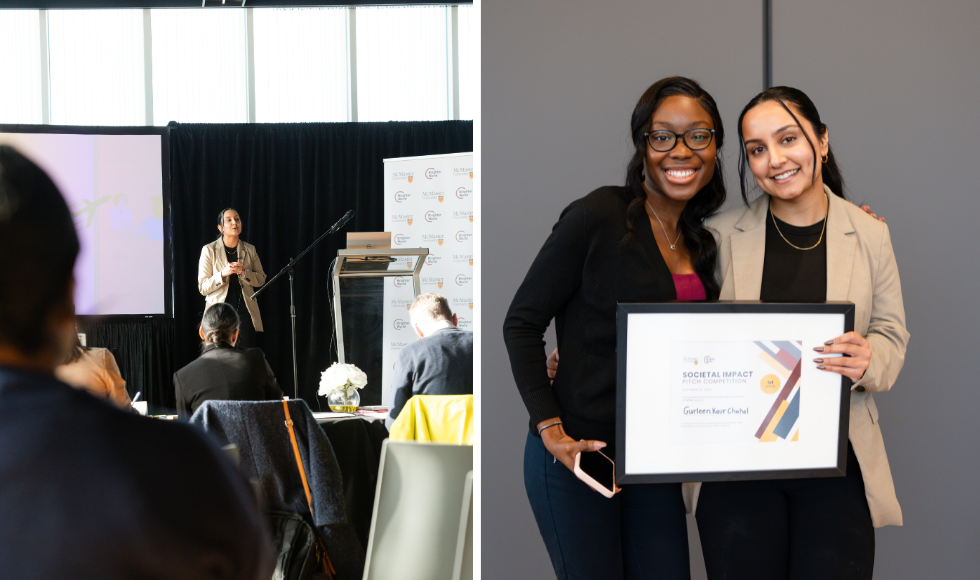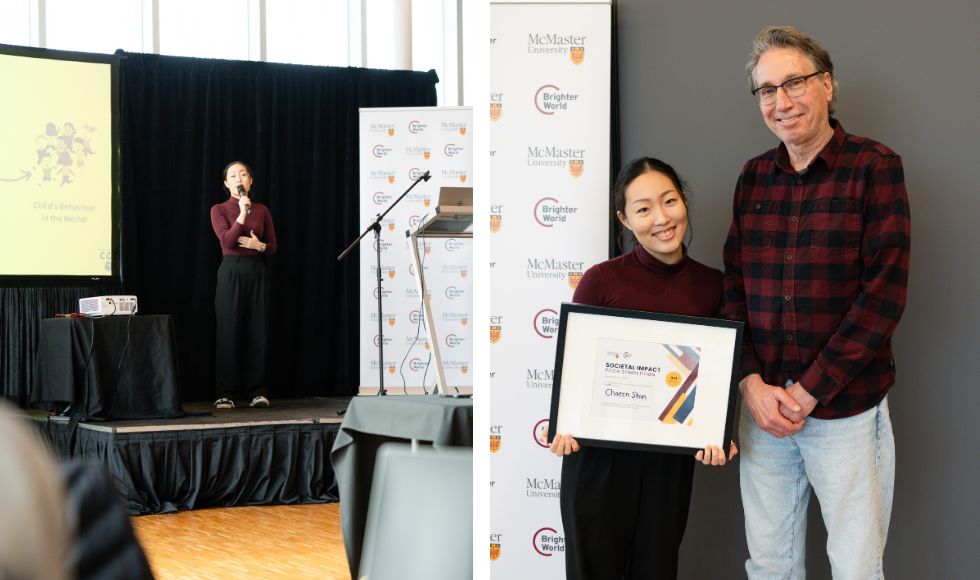Grad students pitch impactful ideas to drive real change

Students showcased how their research can generate positive societal impact and build cleaner, healthier communities. The $1000 first-place prize was awarded to MSc Global Health student, Gurleen Kaur Chahal, front centre.
BY Daniella Fiorentino, Office of the VP Research
December 4, 2024
“Imagine you’re living with a condition that causes crippling pain, fatigue, and infertility,” Gurleen Kaur Chahal began.
“Now imagine that it takes over seven years just to be diagnosed, and after that, you’re told you have to wait months — or even years — before you can get the surgery that could relieve your suffering.
“This is the reality for over 1.5 million women in Canada battling endometriosis. But it’s not just a personal battle; it’s a fight for health-care justice.”
Chahal, a master’s student in the Global Health program, won the top prize at McMaster’s inaugural Societal Impact Pitch Competition with her presentation on more accessible, affordable endometriosis surgical care in Canada.
Fifteen McMaster graduate students presented three-minute pitches on their research, emphasizing its real-world impact and potential to drive change.
Hosted by the Office of the Vice-President, Research, the event showcased students’ innovative ideas for building healthier, cleaner, more equitable communities through research and knowledge mobilization, says Sukhvinder Obhi, McMaster’s associate vice-president, Research (Society & Impact).
“Congratulations to our winners and all our competitors on their outstanding presentations. This event was an incredible display of graduate students’ talent, hard work and passion for social change,” Obhi said.
“It’s truly inspiring to learn about the many ways their research is sparking meaningful real-world impact in Canadian and global society.”
These were the top three pitches, selected by a panel of judges:

Gurleen Kaur Chahal
Navigating borders of endometriosis surgical care: A comparative analysis of access in Canada and global medical tourism
Chahal, a master’s student in McMaster’s Global Health program, took home the $1,000 first prize for her impactful presentation on endometriosis surgical care.
Her research examines the critical barriers to care that lead thousands of patients to seek treatment abroad, and how policy reform, awareness-building and dedicated care centres can provide more patients with access to necessary medical support.

Ahana Malhotra
Innovation in last mile delivery of food banks
The $500 second prize went to Ahana Malhotra, a Ph.D candidate in the DeGroote School of Business Management Science program, for her pitch focused on an innovative food bank delivery program.
“In Canada, one in seven people face hunger and lack access to nutritious food. Simultaneously, about 11.2 million tonnes of food are wasted each year — equivalent to the weight of 95 CN Towers,” says Malhotra, whose research focuses on finding practical and sustainable solutions to food insecurity.
“And here’s the staggering part: this wasted food could feed every person in Canada for five months.”
Malhotra is developing an app that will get food donations delivered directly to food banks by volunteer ride-sharing drivers.
The solution aims to reduce food waste, lower operational costs, cut down on CO2 emissions and allow food banks to to get their products to people in need while it’s fresh.

Chaeeun Shin
Caregiver-Child Transaction Study to raise a happier generation
Chaeeun Shin, a master’s student in the department of Psychology, Neuroscience and Behaviour, took home the third-place, $250 prize for her pitch that asked, How do we raise a happier generation?
“Historically, developmental psychologists thought that there is a ‘best parenting practice’ that works for all kids,” Shin explained in her pitch.
“But in recent years, we have learned that many kids are also born with different personality tendencies. This raises the question that parenting may not be a ‘one size fits all’ type of thing.”
Using direct observation, self-report surveys and physiological measures, including heart rate variability, Shin explores how different dynamics in preschooler–parent interactions predict how children feel about themselves, their mood, and how they behave in other contexts, such as at school and with their peers.
“This research will dispel myths about parenting and propose how we, as adults, should cultivate the next generation,” she says.


